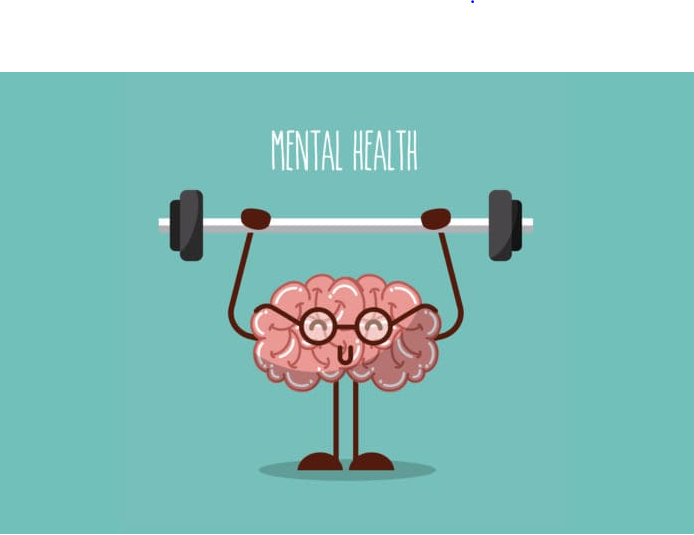The landscape of mental health support in the United Kingdom is undergoing a revolutionary transformation, thanks to the integration of cutting-edge technology. From mobile apps to artificial intelligence, the way individuals access and experience support has evolved dramatically.
In the midst of these advancements, Mental Health Training programs are adapting rapidly, leveraging technology to provide enhanced resources for both professionals and patients.
The Rise of Digital Platforms for Mental Health
One of the most significant changes in mental health support is the advent of digital platforms. These platforms provide users with round-the-clock access to resources, therapists, and support groups. Apps like Calm, Headspace, and Woebot have become household names, offering guided meditations, cognitive behavioral therapy (CBT) exercises, and AI-driven chats that replicate therapeutic conversations.
Digital platforms bridge the gap between accessibility and affordability, ensuring that individuals in remote areas or those with limited financial resources can still access quality mental health services. Furthermore, these platforms play a pivotal role in mental health training, offering virtual workshops and interactive modules for practitioners.
AI and Machine Learning in Mental Health Support
Artificial intelligence and machine learning are spearheading innovative approaches to diagnosing and treating mental health conditions. AI-powered tools analyze user data to identify patterns and predict potential mental health crises. For example, AI systems can monitor social media activity or wearable device metrics to detect signs of depression or anxiety.
For professionals undergoing mental health training, these technologies provide unparalleled insights. AI simulations enable trainees to practice interventions in a controlled, virtual environment, making learning more efficient and impactful. The ability to analyze large data sets also empowers mental health practitioners to tailor treatment plans with greater precision.
Teletherapy: Redefining Accessibility
Teletherapy, or online counseling, has surged in popularity, particularly in the wake of the COVID-19 pandemic. Virtual sessions eliminate geographical barriers, making therapy accessible to individuals across the UK. Platforms like BetterHelp and Talkspace connect clients with licensed therapists, ensuring that support is just a click away.
Teletherapy also integrates seamlessly with mental health training by offering professionals the opportunity to shadow virtual sessions or participate in remote supervision. This hybrid model equips future therapists with the skills necessary to navigate the digital therapeutic landscape.
Wearable Technology and Mental Health Monitoring
Wearable devices like smartwatches and fitness trackers are no longer limited to counting steps or monitoring heart rates. These gadgets now play a vital role in mental health management. Features such as stress level monitoring, sleep pattern analysis, and guided breathing exercises enable users to take proactive steps toward emotional well-being.
For those in mental health training, wearable technology offers real-time data that enhances understanding of how physiological changes correlate with mental health. Practitioners can use this data to create holistic treatment plans that address both physical and emotional health.
The Role of Virtual Reality in Therapy
Virtual reality (VR) is a game-changer in exposure therapy, particularly for individuals dealing with phobias or post-traumatic stress disorder (PTSD). VR simulations create controlled environments where patients can confront and manage their fears safely.
Incorporating VR into mental health training enables professionals to gain hands-on experience with these tools before working with clients. This technology enhances learning outcomes by providing immersive, practical scenarios that mirror real-world challenges.
Online Communities and Peer Support
The internet has given rise to online communities where individuals can share their experiences and offer mutual support. Platforms such as Reddit, Mental Health UK forums, and Facebook groups provide safe spaces for discussions on mental health challenges. These communities are invaluable for reducing the stigma associated with mental health issues.
For trainees in mental health training programs, understanding the dynamics of online support groups can enhance their ability to recommend supplementary resources to clients. These forums also serve as an avenue for gathering insights into common challenges faced by various demographics.
Gamification of Mental Health Interventions
Gamification uses elements of game design, such as rewards and challenges, to engage users in mental health exercises. Apps like SuperBetter use this approach to encourage users to build resilience and improve their mental well-being. By turning therapy into an interactive and enjoyable experience, gamification appeals to younger audiences and reduces barriers to participation.
Professionals in mental health training can benefit from exposure to gamified interventions, learning how to incorporate these tools into their practice to engage clients effectively.
Ethical Considerations and Challenges
While technology offers numerous benefits, it also raises ethical concerns. Data privacy, accuracy of AI diagnoses, and equitable access to digital tools are critical issues that require ongoing attention. Ensuring that technology complements, rather than replaces, human interaction in mental health care is a balancing act.
For those in mental health training, understanding these challenges is essential. Training programs must include modules on ethical considerations and the limitations of technology, preparing professionals to navigate this evolving landscape responsibly.
Conclusion: The Future of Mental Health Support
Technology is undeniably reshaping the way mental health support is delivered in the UK. From AI-driven tools to virtual reality, these advancements are making care more accessible, personalized, and effective. However, the integration of technology into mental health services must be approached with careful consideration of ethical and practical implications.
At Emcare, we believe in harnessing the power of technology to empower both practitioners and patients. By combining innovative tools with comprehensive mental health training, we aim to create a future where mental health support is inclusive, effective, and readily available to all.
For more information about technology visit it flex news



